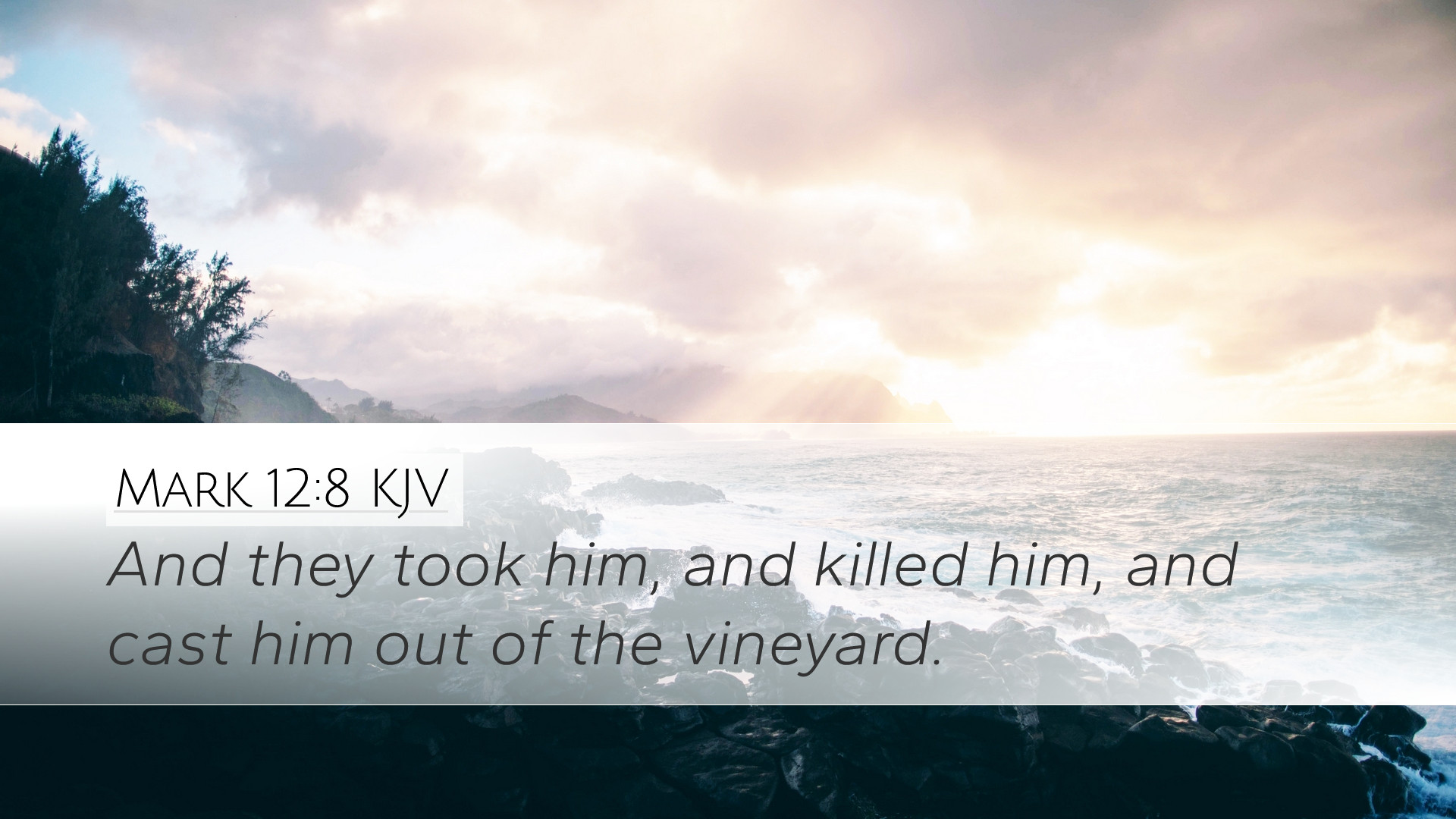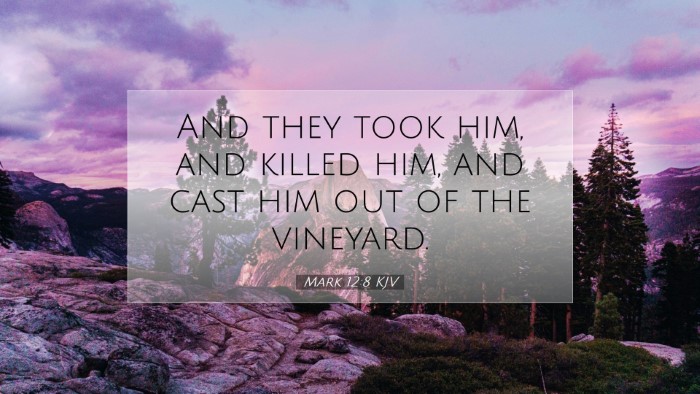Commentary on Mark 12:8
Verse: "And they took him, and killed him, and cast him out of the vineyard."
This verse draws upon a vivid parable that Jesus delivers, reflecting the injustices faced by the prophets of God. As we explore this section of Mark's Gospel, we aim to uncover insights rooted in the rich tradition of biblical commentary.
Contextual Background
In Mark 12, Jesus speaks to the Jewish leaders through the Parable of the Wicked Tenants. This parable serves to highlight the rejection of divine authority and the consequences that follow. It forms part of a larger narrative where Jesus ultimately addresses the impending judgment upon Israel due to their unfaithfulness.
Insights from Matthew Henry
Divine Patience and Human Rebellion: Matthew Henry emphasizes that in this parable, God, represented by the owner of the vineyard, shows extraordinary patience. He sends servants (the prophets) to collect the fruit of righteousness, yet repeatedly they are mistreated and scorned. This highlights humanity's persistent rebellion against God’s authority.
Application to Israel's Leaders: Henry draws a parallel to the Jewish religious leaders of Jesus' time, suggesting they are represented as the tenants who ultimately reject the owner's heir—Jesus Himself. The act of killing the heir is symbolic of the leaders’ intent to eliminate Jesus, whom they see as a threat to their power.
Insights from Albert Barnes
Covenantal Rejection: Albert Barnes notes that this verse illustrates the climax of Israel’s covenantal rejection of God. The killing of the son signifies the ultimate act of defiance against God's authority and demonstrates the seriousness of their sin.
Grave Consequences: He elaborates on the consequences for the tenants: just as the owners of the vineyard will remove them, so too will God’s judgment fall upon the leaders who fail to recognize the authority of His Son. The parable implicitly warns of divine retribution and the loss of the kingdom.
Insights from Adam Clarke
Murder of the Heir: Adam Clarke advises that the act of taking hold of the heir and killing him illustrates not only the rejection of Jesus but also the intense animosity of the Jewish leaders toward Him. Clarke draws a sharp line to the historical reality of Jesus’ crucifixion, underscoring the fulfillment of prophecy and God’s greater plan.
Symbolism of the Vineyard: Clarke expounds on the vineyard as a symbol for the nation of Israel. He explains that the “taking” and “casting out” of the heir signifies the total rejection of the light and grace which had once been afforded to them. This mirrors the spiritual blindness that was pervasive among Israel’s leadership.
Theological Implications
The events narrated in Mark 12:8 invite a deeper theological reflection regarding the nature of sin and redemption. The act of killing the son of the vineyard owner mirrors the rejection of Jesus by His own people, reflecting a broader narrative of mankind’s disobedience toward God.
Foreshadowing Redemption: This verse serves as a reminder that while humanity constantly rebels against God, His redemptive purpose remains intact. The narrative ultimately leads to the resurrection of the Son, signifying victory over sin and death.
Practical Applications
- Recognition of Authority: Pastors and leaders, like the Jewish leaders of the parable, must recognize and submit to the authority of Christ in their ministries.
- Call to Faithfulness: Believers are called to reflect on their own lives to ensure they do not fall into patterns of rebellion against God’s will.
- Understanding Judgment: This passage serves as a sobering reminder of the consequences of unfaithfulness and the importance of bearing fruit for the Kingdom of God.
Conclusion
Mark 12:8 presents a potent warning against the rejection of Christ and emphasizes God's unwavering pursuit of His people. As we reflect on this passage through the lenses of Matthew Henry, Albert Barnes, and Adam Clarke, we glean rich insights that have profound implications for faith, leadership, and the continual need for repentance.


